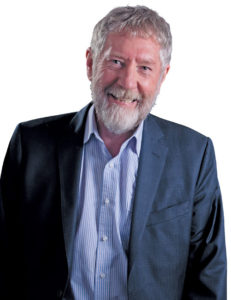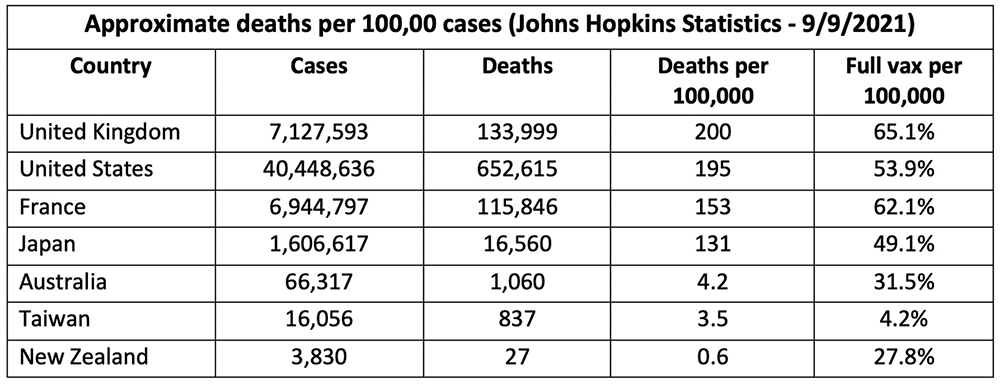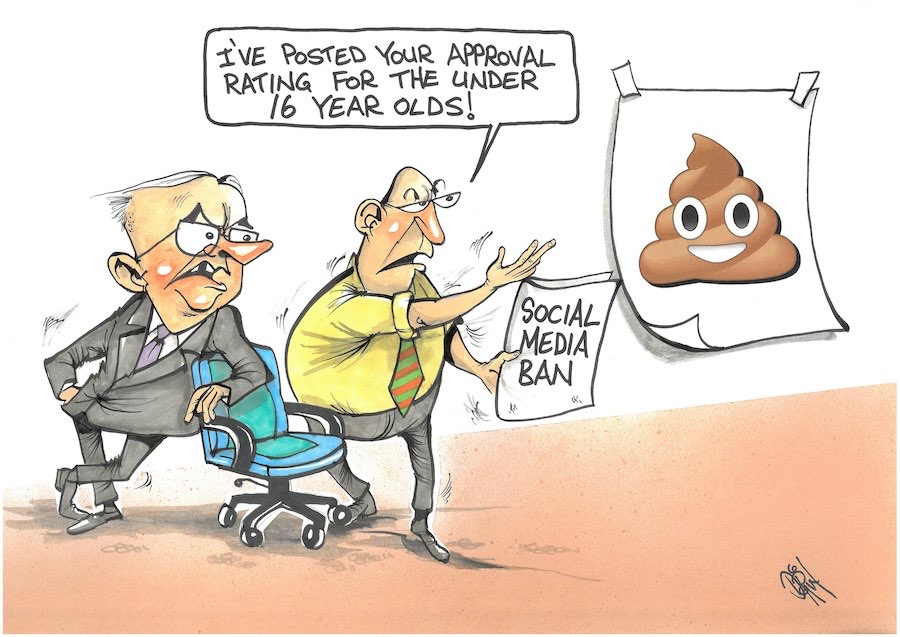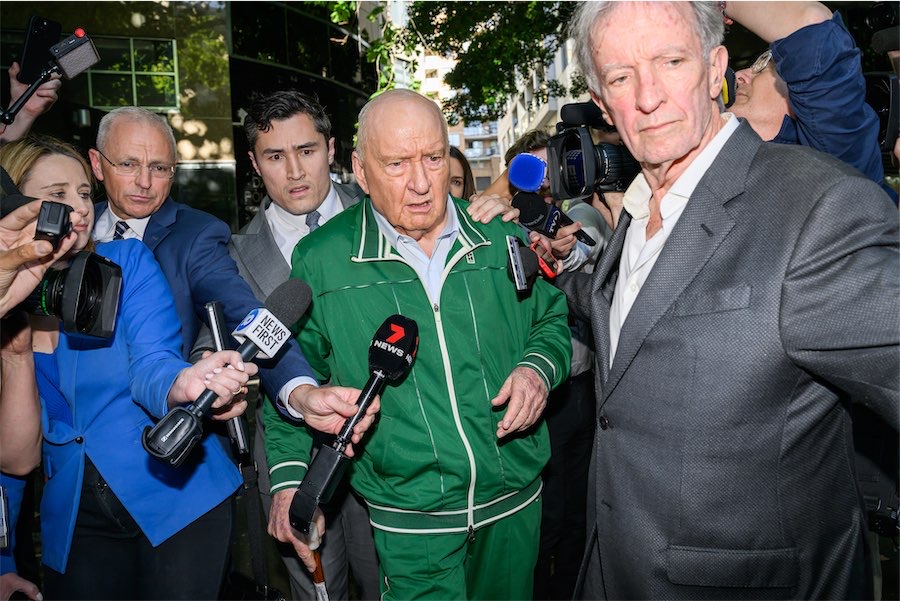“Australian jurisdictions can be proud of their record. Another way to look at it is, compared to the UK, actions taken by Australian governments have saved more than 50,000 lives,” writes columnist MICHAEL MOORE.
AS vaccination rates increase, it is not a bad time to assess just how Australian governments have, until now, managed our population through the COVID-19 pandemic.

It is also worth looking at what’s ahead.
Although some would like to focus on economic impact and the level of inconvenience to citizens, the most significant indicator is sickness and death.
Throughout the world there have been more than 4.5 million confirmed deaths since the start of this pandemic and well over 200 million confirmed cases. That is a little less than one tenth the deaths and half of the number of cases predicted for the Spanish flu of a century ago.
In mid-July the UK celebrated its “freedom day” and getting life “back to normal”. There are those who argue Australia should follow suit. However, it is worth noting that statistics from the Baltimore-based Johns Hopkins University Resource Centre show that since the start of the pandemic the UK has had to deal with more than 7 million cases and around 133,000 deaths.
France has had nearly 7 million confirmed cases and more than 100,000 deaths. And even Japan, that successfully staged the Olympics, has suffered with more than 1.5 million cases and more than 16,500 deaths. Taiwan has had 16,000 cases and just over 800 deaths. NZ may be wrestling with a lockdown at the moment – but it has had 27 deaths and just over 3800 cases.
It is worth looking at the range of countries on a comparative basis. The table illustrates how well Australian governments have handled COVID-19.
What does the future hold? Vaccination is the key. The table illustrates the countries that failed to contain the virus have worked desperately to immunise the population. However, these figures do not show international failure to effectively assist low and middle-income countries that have not had equitable access to vaccines.On this basis, Australian jurisdictions can be proud of their record. Another way to look at it is, compared to the UK, actions taken by Australian governments have saved more than 50,000 lives.
 The world will not return to any semblance of normality until everyone has access to vaccines.
The world will not return to any semblance of normality until everyone has access to vaccines.
The other element in considering the future is the use of “vaccine passports”. These are not new in terms of travel. For those of us old enough to remember, a smallpox vaccine was a condition of travel to many countries before the elimination of that disease through vaccination. Travelling to countries where there is endemic Yellow Fever requires a vaccination as a condition of returning to Australia.
However, “vaccine passports” has taken on a larger meaning in the context of this pandemic. People who carry evidence of being fully vaccinated will have access to places where the non-vaccinated will be refused entrance. This might include restaurants, sports grounds, cinemas and most forms of public transport, including coaches and flying.
In a recently released position paper, the ACT Human Rights Commissioner, Helen Watchirs, has warned “vaccine passports” may “give rise to human rights and discrimination concerns, particularly in terms of accessing everyday goods and services”. She added that if used inappropriately they “could deepen inequality and discrimination against people who have not yet been vaccinated” and suggested the importance of dealing with conscientious objection to vaccination in a “structured way”.
Human rights are fundamental in working forward. However, it is also important to keep in mind that US President Biden described COVID-19 as the “pandemic of the unvaccinated”. Delays in being vaccinated will delay the return to normality.
Who can be trusted?
In a world of spin and confusion, there’s never been a more important time to support independent journalism in Canberra.
If you trust our work online and want to enforce the power of independent voices, I invite you to make a small contribution.
Every dollar of support is invested back into our journalism to help keep citynews.com.au strong and free.
Thank you,
Ian Meikle, editor





Leave a Reply